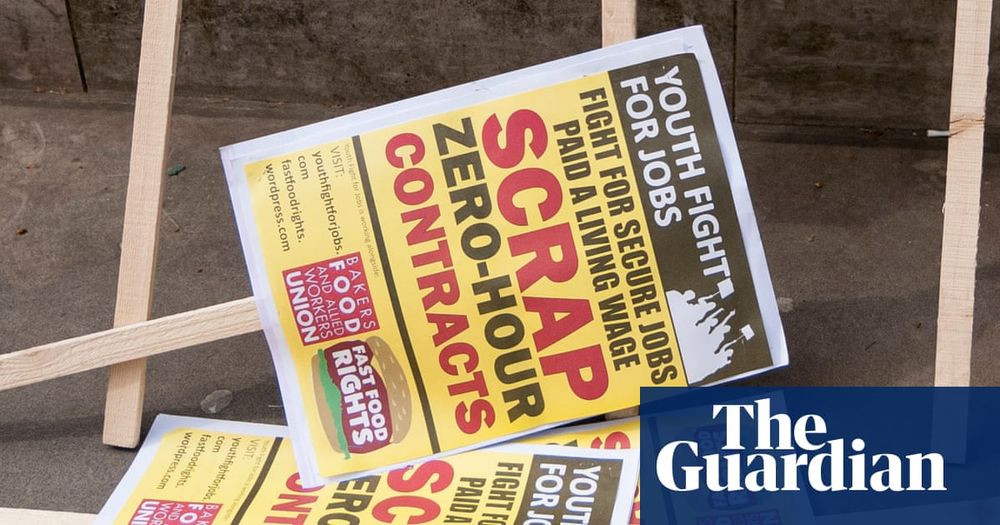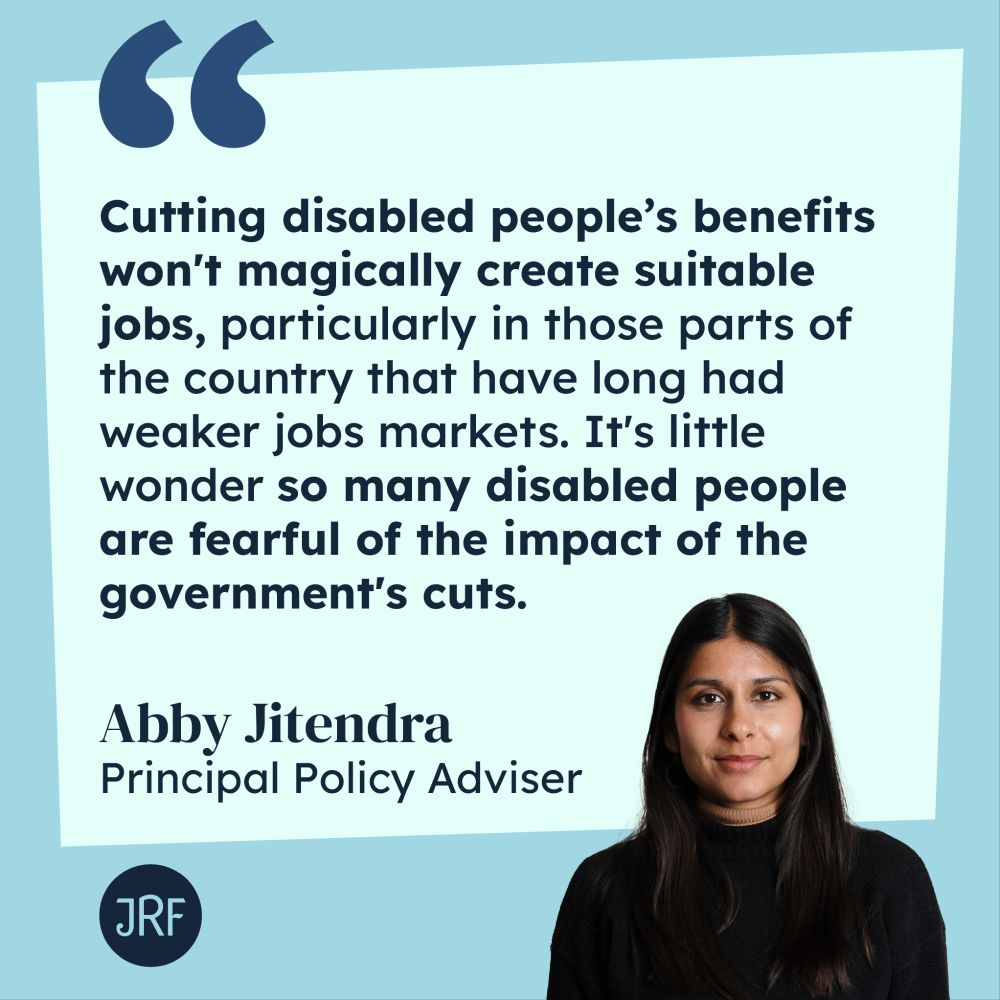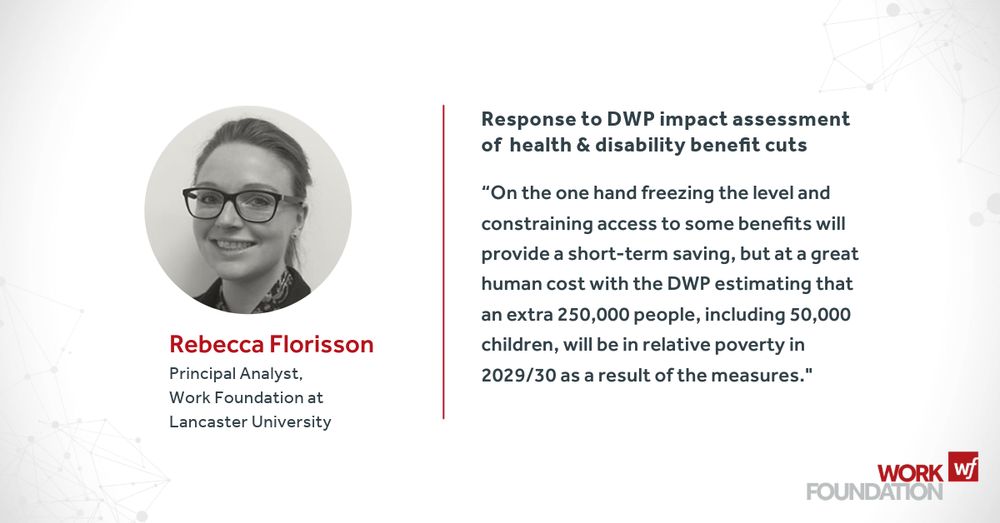Rebecca Florisson
@rebeccaflorisson.bsky.social
650 followers
460 following
130 posts
Principal Analyst at the Work Foundation and part- time PhD at Queen Mary Uni of London. Insecure work, labour markets, data. Opinions my own.
Posts
Media
Videos
Starter Packs
Reposted by Rebecca Florisson
The Guardian
@theguardian.com
· Jul 27

Zero-hours contracts: peers accused of ‘trying to block stronger UK workers’ rights’
Lords ‘doing bidding of bad bosses’, says TUC, amid growing campaign by business leaders to water down Labour’s plans
Conservative and Liberal Democrat peers have been accused of trying to block stronger rights for millions of workers amid a growing campaign by business leaders to water down Labour’s zero-hours contract plans.
In a blow for the government, the Lords last week voted to curtail the manifesto promise to give workers a right to a guaranteed hours contract and day-one protections against unfair dismissal. Continue reading...
www.theguardian.com
Reposted by Rebecca Florisson
Reposted by Rebecca Florisson
Reposted by Rebecca Florisson
Reposted by Rebecca Florisson











